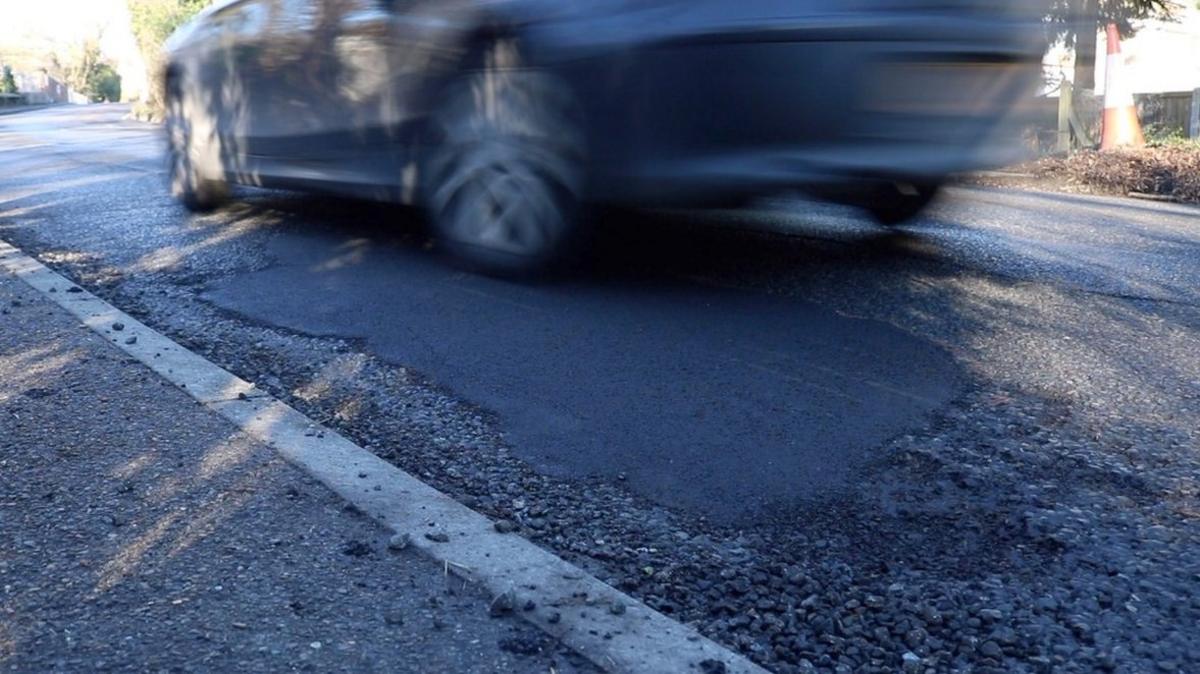Graphene being trialled to prevent potholes in Essex
- Published
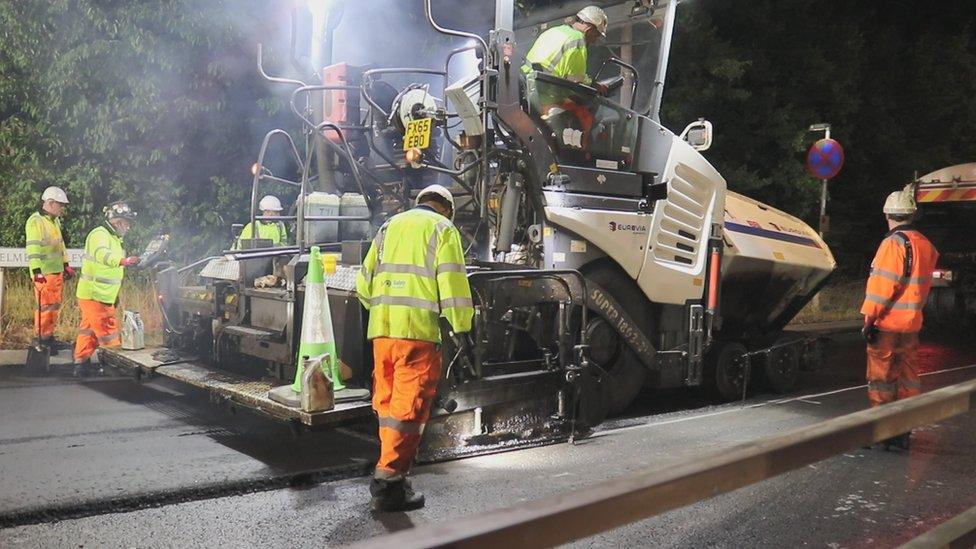
Roads are being resurfaced using graphene mixed into traditional asphalt in Essex
A "game changing" trial to try and double the lifespan of roads with a new strengthening material is under way.
Essex County Council said it hoped by adding graphene to traditional surfacing material, the county's roads would last longer.
The use of graphene could mean less maintenance and fewer traffic delays associated with carrying out frequent repairs to potholes and other damage.
It said it should also halve the carbon footprint involved with the roadworks.
The road surface trial is being undertaken in Chelmsford. Trials have also occurred in other parts of the UK, including on the A1.
Key to the innovation is a technology called Gipave, which is added to a traditional surfacing material - in this case, a hot rolled asphalt.
Gipave contains graphene - microscopic flakes of carbon atoms arranged in a honeycomb lattice - which is 200 times stronger than steel, yet extremely flexible, making the asphalt far less susceptible to hardening and cracking in cold temperatures and softening in warm weather, the county council said.
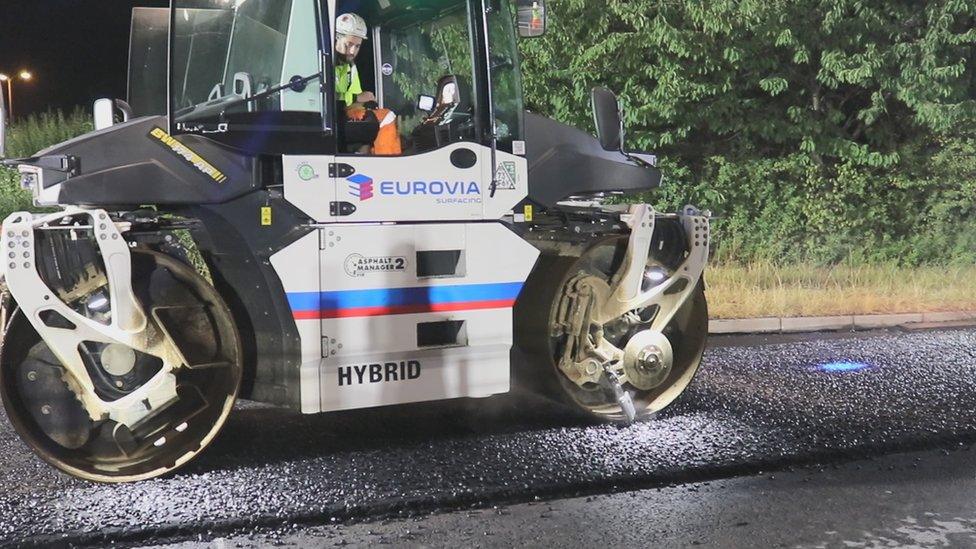
The trial is taking part on roads in Chelmsford
Lee Scott, Conservative cabinet member for highways maintenance and sustainable transport, said the trial was "potentially a game changer in road and footway surfacing".
"We look forward to seeing what the results of the trial and what potential benefits the graphene solution might bring to the county - and indeed the rest of the UK," he said.
Millions of pounds have been spent by local councils repairing potholes each year, a recent study showed.
Rock star and Essex resident Rod Stewart recently highlighted problems with potholes in the county when he started filling them in outside his home.
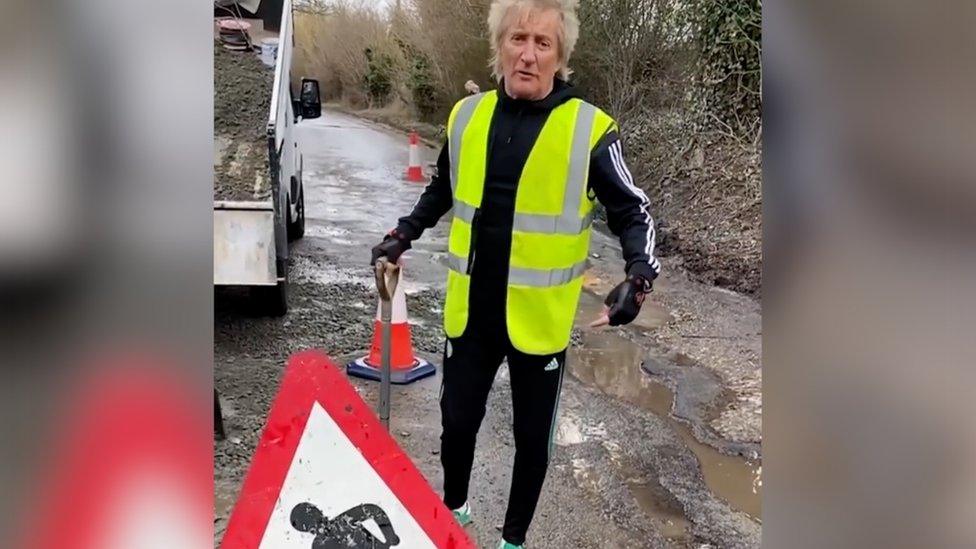
Sir Rod Stewart said his Ferrari could not get through the potholes

Find BBC News: East of England on Facebook, external, Instagram, external and Twitter, external. If you have a story suggestion email eastofenglandnews@bbc.co.uk, external
Related topics
- Published19 August 2022
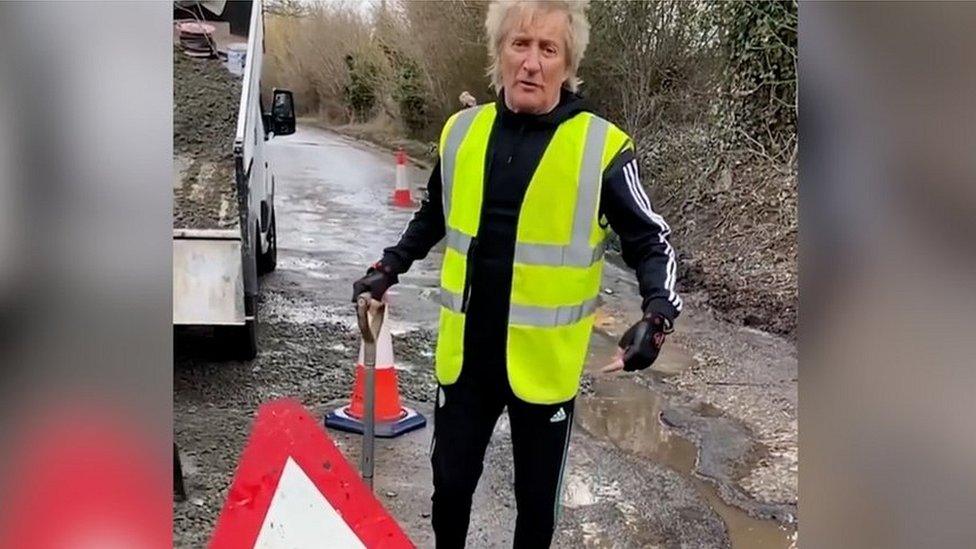
- Published18 March 2022
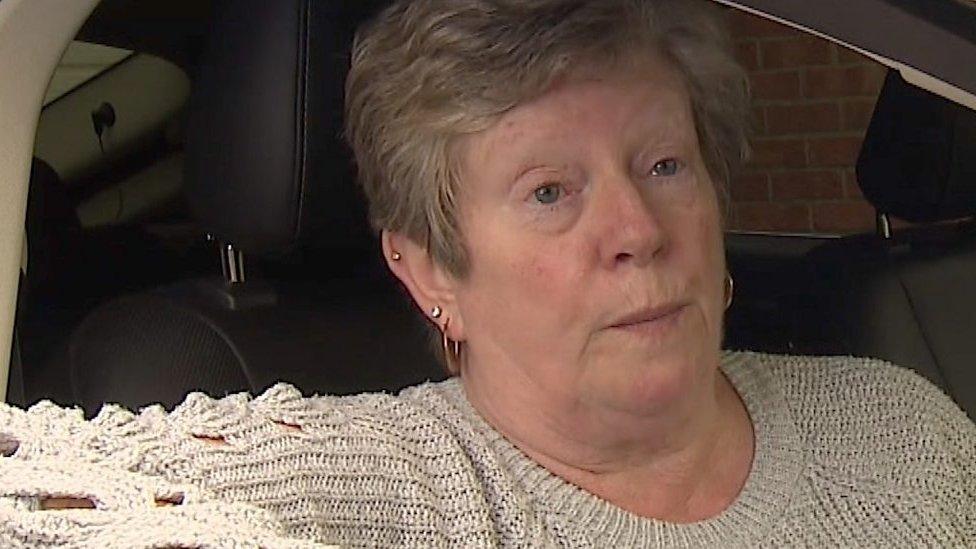
- Published14 January 2022
